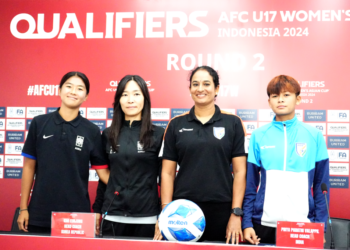Singapore said hospital resources were under ”serious strain” as cases have spiked to 1,650 new COVID-19 cases including 277 from foreign worker dormitories and deaths of three Singaporeans linked to the deadly diseases.
The rapid rise in COVID-19 cases is “of concern” and is putting ”serious strain” on hospital resources despite the shift to community and home care, said co-chair of the multi-ministry task force, Gan Kim Yong Friday.
To ensure that the healthcare system continues to cope with the spike, Singapore has to take action to protect the hospital system, Channel News Asia quoted Gan, who is the Minister for Trade and Industry.
Working from home will also be the default for employees while the home-based learning period for primary and special education schools has also been extended.
An existing cluster at Blue Stars Dormitory for migrant workers has been linked to another 49 new COVID-19 cases on Friday, taking the cases to 219.
Also on Friday, six cases were reported at Woodlands Dormitory for migrant workers, taking the number of infections to 64 at the residence. Seven cases were confirmed at 30 Sunview Way Construction site, taking the total to 222 there. Most of the workers on the site are foreigners.
There were also four imported cases (those who arrived in Singapore from abroad), said the Ministry of Health (MOH) in an update released to the media around 10.40 pm.
Friday’s three deaths from the disease took the national toll to 73.
Eighteen people have died from COVID-19 related complications so far in September, equalling the August toll.
As of Friday, Singapore reported a total of 84,506 COVID-19 cases.
There are 1,092 patients warded in hospitals. Most of them are well and under observation, said MOH.
A total of 162 cases of serious illness require oxygen supplementation, and 23 are in critical condition in the intensive care unit (ICU).
Among those who fell ”very ill” are 151 seniors above the age of 60.
Over the last 28 days, 98 per cent of the local cases were asymptomatic or had mild symptoms.
There were 297 cases who needed oxygen supplementation and 32 had been in the ICU. Of these, 52.6 per cent were fully vaccinated and 47.4 per cent were either partially vaccinated or unvaccinated.
On the safety measures to control the spread of the deadly diseases, the group size limit for dining-in at regular food and beverage (F&B) outlets will be reduced to two vaccinated people from Monday.
The cap on social gatherings will also be reduced, MOH announced on Friday evening, citing the rising cases of coronavirus for the fourth consecutive day.
The new restrictions will last until October 24.
MH said it will review the measures two weeks after implementation and adjust them based on the community situation then.
Speaking at a press conference, Gan noted that Singapore has seen a sharp increase in the number of local cases since about two weeks ago — almost 1,600 a day.
“If the trend continues, the number of cases is likely to double to 3,200 a day by next week, and may even increase beyond that,” the Channel quoted the Minister as saying.
“If positive cases continue to rise rapidly, we will expect to see the number of serious cases rise too. In fact, we are already starting to see a rise in the number of persons requiring oxygen, admission into ICU and deaths, mostly from cases infected some weeks ago,” said Gan.
The large majority, or 98 per cent of cases, are asymptomatic or have mild symptoms, said MOH. This is due to Singapore’s high vaccination coverage, with 82 per cent of the population fully vaccinated, it said.
As of Thursday evening, 23 beds in the ICU were occupied, and Singapore can set up almost 300 beds “at short notice”, said Health Minister and task force co-chair Ong Ye Kung.
“As of now the situation remains stable, but we need to watch it very closely. ICU numbers lag infection numbers by 10 days, 14 days, so we will expect ICU numbers to rise in the coming days,” he said.





















